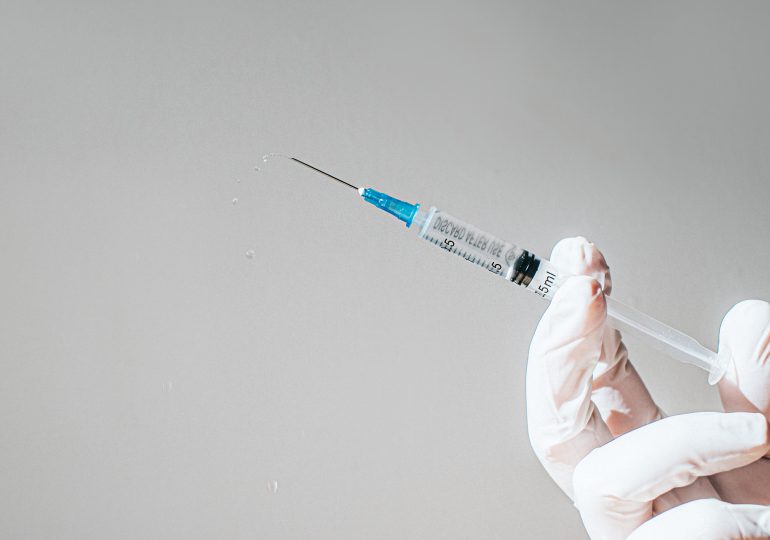The U.S. Department of Health and Human Services (HHS) recently announced it will wind down funding for mRNA vaccine development—which could prove to be one of the costliest, deadliest decisions HHS Secretary Robert F. Kennedy Jr. will make during his tenure. HHS has already scaled back access to and recommendations for COVID-19 vaccines—a decision experts are deeply concerned about—and Kennedy’s frequently misinformed views on vaccines continue to fan the flames of anti-vaccination attitudes. Now, Kennedy’s failure to fully explore the potential of mRNA vaccines could stagnate research that has the potential to save millions of lives around the world.
[time-brightcove not-tgx=”true”]
The dark cloud of COVID-19, one of the deadliest infectious disease outbreaks in history, can hardly be thought of as having a silver lining. But the nearest thing to a glimmer of a positive would be that the fast development of COVID-19 vaccines helped prevent many more deaths and led to rapid progress in our understanding and use of mRNA technology. This greater understanding is now being explored as potential preventions or therapies for a wide range of diseases, from H5N1 bird flu and HIV to cancer.
Terminating 22 mRNA projects will not only directly set back research on mRNA vaccines for infectious diseases including flu; it will also arguably have negative knock-on effects for researchers the world over exploring personalized treatments for noncommunicable diseases like cancer. Early research on some novel uses of mRNA is promising. For example, a preliminary trial of an mRNA HIV vaccine found that 80% of participants generated neutralizing antibodies, which in theory could help block HIV—pending further research and development. A melanoma mRNA vaccine, when combined with existing treatment, reduced the risk of death or disease recurrence by nearly 50%. (The vaccine is currently being tested further in a full scale Phase 3 clinical trial). Even more amazingly, personalized vaccines—where vaccines are created specifically for an individual using information from their cancer to optimize their immune response—using mRNA technology have even been proposed as a universal vaccine adaptable for all cancers.
Read More: The CDC Shooting is a Dark Sign for Science and America
Much of the research on personalized mRNA cancer vaccines is in some way indebted to gains in knowledge made from COVID-19 research, and it stands to reason that pulling such a large amount of funding from mRNA projects will slow down further progress in these areas. Approximately $500 million worth of research funding would almost certainly have advanced the scientific community’s fundamental understanding of how, and to what extent, mRNA technology works and how it could be applied to prevent and fight disease.
Also problematic is the manner in which HHS under Kennedy conveys their decisions. In announcing the funding withdrawal, HHS states it “will focus on platforms with stronger safety records and transparent clinical and manufacturing data practices.” This implies that mRNA vaccines have not been properly or transparently tested—which is not true. The safety of COVID-19 mRNA vaccines has been demonstrated in numerous studies and systematic evidence reviews. Like pretty much all vaccines and treatments, mRNA vaccines are not without side effects, but evidence shows that any adverse events are nearly always mild and short-lived. COVID-19 vaccines have already saved millions of lives globally, with mRNA vaccines accounting for a significant majority of all doses administered in many countries. Kennedy’s claim that “mRNA technology poses more risk than benefits” is almost farcical in light of scientific evidence.
Moreover, the whole purpose of clinical research is to test whether new scientific innovations—like novel applications of mRNA into different diseases—are safe and effective in the first place. Kennedy has long spoken of how we need more evidence and testing on mRNA vaccines, and so it is painfully ironic that he is pulling funding for research which would enable the scientific community to do just that.
Read More: An mRNA Melanoma Vaccine Shows Promise
Perhaps most concerning is the caliber of evidence upon which decisions with such massive implications are being made. In an HHS announcement of the termination of mRNA projects, Kennedy claims “the data show these vaccines fail to protect effectively against upper respiratory infections like COVID and flu.” The truth is, initial vaccines and booster doses have been shown to be very effective against reducing infection, hospitalization, and death from COVID-19. Kennedy does not even provide links or citations to systematic reviews or meta-analyses in reputable journals, the gold standard methods for scientific evidence. Rather, he simply links to an online evidence review which cherry picks studies searching only for the harms—and not the overall safety, effectiveness, or cost-benefit analysis—of the mRNA vaccines. The report does not describe the methods used to select and review studies, nor does it appear itself to have been peer-reviewed by other scientists. It almost certainly wouldn’t be publishable in a scientific journal, yet it is being used as evidence to justify the fate of half a billion dollars of research funds.
This is another example of how fringe viewpoints on mRNA technology, instead of the best available scientific evidence, are under Kennedy and HHS becoming the new mainstream.
The U.S. has been at the forefront of developing mRNA technology for the past few decades, from the Nobel Prize-winning research of professors Katalin Kariko and Drew Weissman at the University of Pennsylvania on mRNA, to the key role of U.S.-based pharmaceutical companies in vaccine production and rollout. Perhaps other countries, companies, and funding sources will offset this funding loss and lead the development of mRNA vaccine innovations. Large investments are already being made in the U.K. and China, for example. That would be to the detriment of U.S. scientific innovation and progress.
Kennedy is right to scrutinize the potential overreach of the pharmaceutical industry, and to ensure their research and development is ethical and transparent. However, his seemingly personal war against “Big Pharma” and ideological opposition to mRNA risks stunting research that could one day help prevent the next pandemic or even provide cures for hitherto incurable cancers.
Leave a comment




